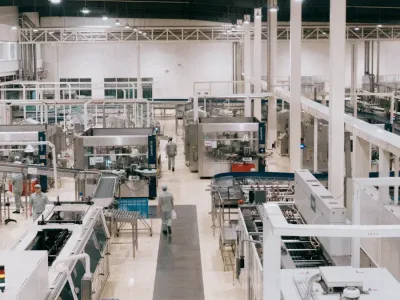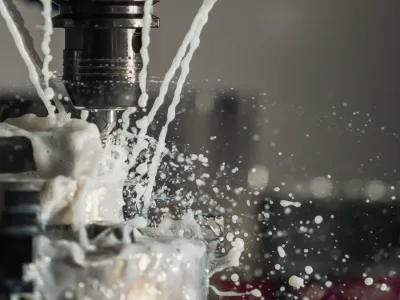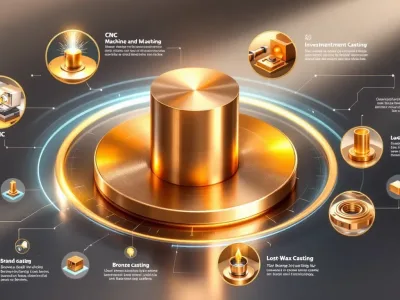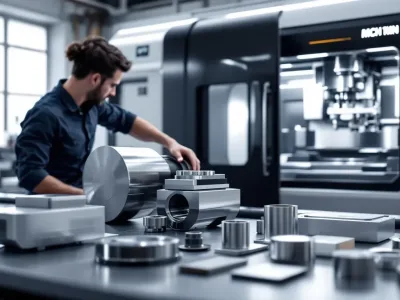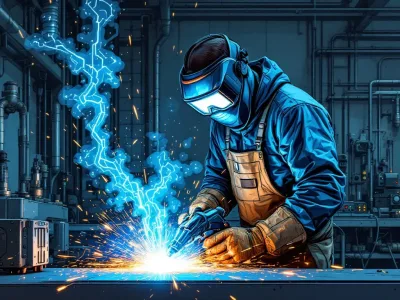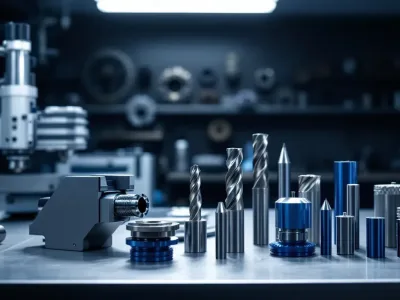
Titanium does not rust like steel or iron, leading many to wonder, "can titanium rust?" The answer is that it does not rust because it contains no iron, which is the primary cause of rust. Instead, titanium forms a thin oxide layer for protection, typically measuring 3–7 nanometers in thickness. This protective layer can become stronger with special treatments, such as heating. Studies indicate that longer heating times enhance its toughness and longevity. However, it is important to note that titanium can corrode under certain conditions, including exposure to acids, salt, or extremely high heat. Despite this, titanium’s rust resistance makes it highly valuable, as it is commonly used for dental implants, marine gear, and tools. Rust-proof titanium performs exceptionally well in environments where other metals may fail.
Key Takeaways
Titanium does not rust because it has no iron. It creates a strong oxide layer that protects it from damage.
Titanium might corrode in tough conditions, like strong acids or salty water. Checking it often can stop this from happening.
Anodizing and passivation are ways to make titanium's protective layer stronger. This helps it last longer in hard environments.
Titanium is great for medical implants and marine tools. It resists rust and stays strong for a long time.
Taking care of titanium is easy. Clean it with mild soap and avoid using harsh chemicals to keep it in good shape.
Does Titanium Rust or Corrode?
Why Titanium Does Not Rust
Have you ever wondered if titanium rusts like other metals? The answer is no. Titanium does not rust because it has no iron, which causes rust. Instead, when titanium meets oxygen, it forms a protective layer. This layer, called titanium dioxide (TiO2), keeps air and water from harming the metal. Unlike rust, which falls off and exposes more metal, this layer stays strong. If it gets scratched, it fixes itself, keeping titanium safe from rust.
Tests show that titanium resists rust very well. For example:
Pure titanium stays rust-free in normal conditions.
It can last over 100 years in seawater without corroding.
The titanium dioxide layer blocks harmful elements, stopping rust.
This special feature makes titanium perfect for things like marine tools, medical implants, and airplane parts.
Understanding Corrosion in Titanium
Titanium doesn’t rust, but it can corrode in certain situations. Corrosion happens when the protective layer breaks, exposing the metal. High heat, acids, or salt can weaken this layer. For example, studies show titanium alloys like Ti-6Al-4V can corrode in strong acids or low-oxygen places.
Here’s what studies found:
Study | Findings |
|---|---|
Dai et al. (2016a) | Ti-6Al-4V alloy corroded in salty acid solutions. |
Li et al. (2021) | TC4 alloy resisted saltwater but corroded in algae-filled solutions. |
Pang and Blackwood (2016) | Low oxygen and high heat caused corrosion in titanium and its alloys. |
Even with these issues, titanium resists corrosion better than most metals. It works well in tough environments.
The Role of Oxygen in Titanium's Oxide Layer
Oxygen is key to titanium’s rust resistance. When titanium touches air or water, it reacts with oxygen to form a strong titanium dioxide layer. This layer stops harmful elements from reaching the metal. It also makes titanium safe for medical use, like in dental implants. For example, the layer helps bone attach to a stable surface instead of raw titanium.
Another amazing thing about this layer is its ability to heal itself. If it gets damaged, oxygen in the air quickly repairs it. This keeps titanium rust-free even in tough conditions. But in places with no oxygen, like deep cracks or dry areas, the layer can’t fix itself. This increases the chance of corrosion.
Factors That Affect How Titanium Resists Corrosion
How Environment Impacts Titanium: Salt, Acids, and Heat
The environment greatly affects how titanium fights corrosion. In salty places, like oceans, titanium can get tiny pits or cracks. This happens when its protective layer breaks in small spaces. Even so, titanium lasts longer than most metals in these areas.
Strong acids can also harm titanium's protective layer. For example, acids like hydrochloric acid can weaken it, especially if very strong. High heat is another problem. Heat over 600°F (316°C) can damage the layer, making titanium less resistant to corrosion in factories.
Alloy Mix and Surface Smoothness
The mix of metals in titanium alloys and their surface smoothness matter a lot. Alloys like Ti-6Al-4V are strong and tough. But rough surfaces on these alloys can corrode faster. Tiny unmelted bits on rough areas can start corrosion, especially in tough conditions.
Smoother surfaces help titanium resist corrosion better. A smooth finish lets the protective layer form evenly and quickly. For example, polished titanium works well for medical tools and airplane parts because it resists corrosion more effectively.
Why Oxygen Matters in Low-Oxygen Places
Titanium needs oxygen to keep its protective layer strong. In places with no oxygen, like deep cracks or still water, the layer can’t fix itself if damaged. This makes corrosion more likely over time. For instance, underwater pipes or closed spaces can cause titanium to corrode if oxygen is too low.
To avoid this, make sure titanium gets enough air or oxygen. This keeps the protective layer strong, even in hard-to-reach areas.
Can Titanium Corrode in Certain Situations?
Corrosion in Saltwater: Pitting and Crevices
Titanium faces challenges in salty water, like oceans. Saltwater has chlorides that can harm titanium. These can cause pitting and crevice corrosion. Pitting makes tiny holes on the surface. Crevice corrosion happens in tight spaces, like between parts. Chlorides get trapped there and damage the metal.
Why does this happen in small areas? It’s because there’s no oxygen in these spots. Without oxygen, titanium can’t fix its protective layer. This leaves the metal open to damage. Still, titanium is better than most metals in salty water. It’s great for ships, underwater pipes, and marine tools.
Cracking from Stress and Hydrogen Damage
Stress corrosion cracking (SCC) and hydrogen embrittlement can also harm titanium. SCC happens when titanium is under stress in bad environments. For example, high-pressure systems can cause cracks over time. These cracks make titanium weaker.
Hydrogen embrittlement happens when hydrogen enters titanium. This can occur in acidic places or during chemical reactions. Hydrogen makes titanium brittle and easier to break. To avoid this, use the right titanium alloy and limit hydrogen exposure.
Damage from Heat and Acids
Titanium resists corrosion even in tough conditions. It works well with oxidizing acids like nitric acid. In nitric acid, titanium forms a strong layer that stops corrosion. This layer helps titanium last in acid systems.
But very pure nitric acid at high heat can still harm titanium. If the protective layer weakens, corrosion may start. Heat above 600°F (316°C) also reduces titanium’s resistance. Industries using titanium in hot or acidic places must watch conditions closely. This keeps titanium strong and corrosion-free.
How Does Titanium Compare to Other Metals?
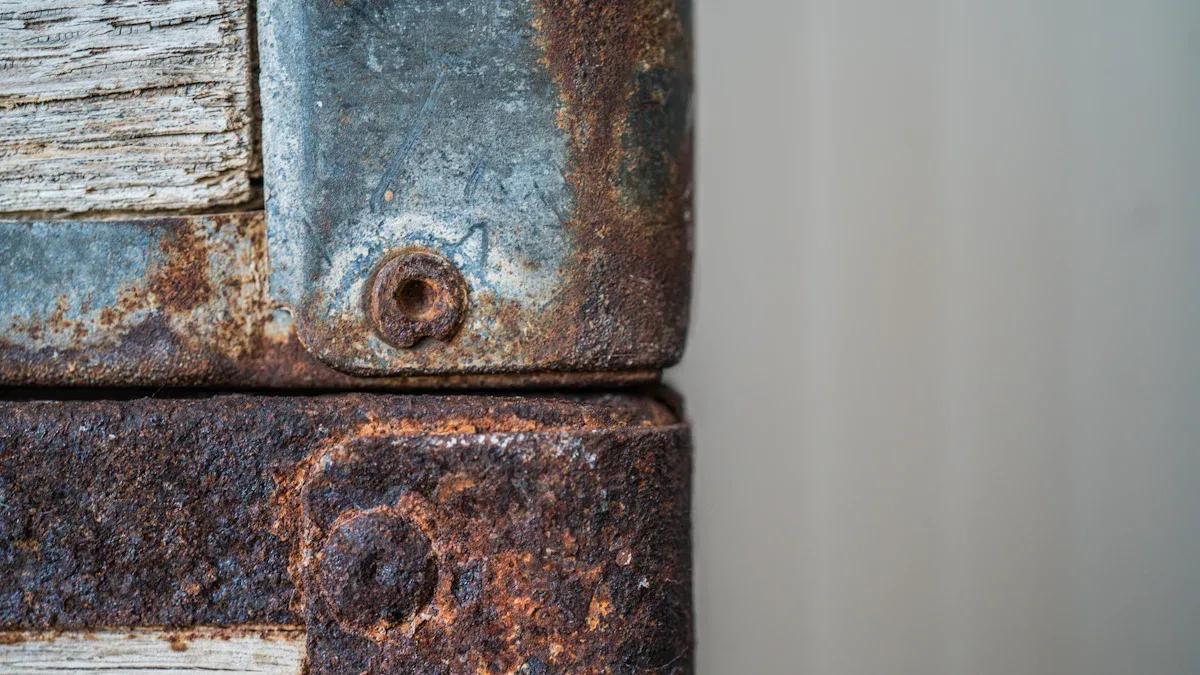
Titanium vs. Steel: Resistance to Rust and Corrosion
Titanium is better than steel at resisting corrosion. Steel, especially carbon steel, rusts because it has iron. Iron reacts with oxygen and water, causing rust. Titanium doesn’t rust because it forms a protective oxide layer. This layer keeps harmful elements away, even in tough places like the ocean.
Studies show titanium alloys like Ti-6Al-4V resist corrosion well. For example:
At 35°C, Ti-6Al-4V corroded at 21.868 mm/year.
NO7208 steel corroded much slower at 0.392 mm/year.
Steel works well in some controlled settings. But titanium is better for long-term corrosion resistance.
Titanium vs. Aluminum: Durability in Harsh Conditions
Both titanium and aluminum are lightweight metals. However, titanium is stronger and resists corrosion better. Its oxide layer protects it from saltwater and acids. This makes it great for marine tools and chemical plants. Aluminum resists some corrosion but gets damaged more easily in harsh places.
Here’s how they compare:
Property | Titanium | Aluminum |
|---|---|---|
Corrosion Resistance | Excellent, forms a strong oxide layer | Weaker, more prone to corrosion |
High-Temperature Performance | Better, handles tough conditions | Worse, struggles in high heat |
Strength-to-Weight Ratio | Higher, good for tough jobs | Lower, less suited for hard tasks |
Titanium’s toughness makes it the top choice for aerospace and marine industries.
Titanium vs. Stainless Steel: Applications and Longevity
Stainless steel resists rust better than regular steel because of its chromium. But titanium lasts longer and performs better. Research shows titanium implants resist corrosion more than stainless steel ones. For example:
Material | Corrosion Resistance Level | Notes |
|---|---|---|
High | Resisted corrosion better than stainless steel. | |
Stainless Steel mini-implants | Lower | Corroded faster than titanium. |
Titanium is also lighter and safer for medical uses like implants. Stainless steel costs less, but titanium lasts longer and needs less upkeep. This saves money over time.
Protecting Titanium from Corrosion
Anodizing for Better Corrosion Protection
Anodizing is a great way to protect titanium from damage. This process makes the oxide layer on titanium thicker. A thicker layer keeps the metal safe from saltwater, acids, and heat. Many industries, like aerospace and marine, use anodizing to make titanium parts last longer.
Tests show how anodizing helps:
Test Type | What It Does |
|---|---|
Microscopic Check | Looks at the oxide layer’s thickness and finds weak spots. |
Corrosion Testing | Tests how well the layer protects using Salt Spray and Electrochemical methods. |
Adhesion Strength Test | Checks how strongly the oxide layer sticks to the titanium. |
These tests prove anodizing makes titanium stronger and better for tough jobs.
Passivation and Regular Care
Passivation is another way to protect titanium from corrosion. It uses chemicals to make the oxide layer stronger. This keeps titanium safe from rust and other damage, even in hard conditions.
Industries use passivation to make titanium last longer:
Automotive: Improves fuel injectors and exhaust parts.
Medical Devices: Keeps implants, like pacemakers, safe and rust-free.
Cleaning and checking titanium regularly also helps. Removing dirt keeps the oxide layer strong and protective.
Tips to Make Titanium Last Longer
Using smart methods can help titanium last a long time. Adding coatings, watching the environment, and regular checks are key. Studies show these steps work well:
Industry | Problem | Solution | Results | Lesson Learned |
|---|---|---|---|---|
Chlor-Alkali Industry | Anodes wore out quickly due to coating issues. | Used Accelerated Life Testing (ALT) to test Ru-Ir-Ti coatings. | ALT helped create stronger coatings, saving money and improving reliability. | |
Wastewater Treatment | Parts failed in harsh chemical environments. | Ran Real-World Simulation Testing on Ru-Ti coated anodes. | Anodes worked well for ten years without major damage. | Testing ensured long-lasting performance in tough conditions. |
By following these tips, titanium can stay strong and resist corrosion, even in the hardest environments.
Titanium doesn’t rust because it has no iron in it. Instead, it creates a strong oxide layer that stops corrosion. This protective layer makes titanium great for tough places like oceans and factories. Titanium is also safe for medical use, like dental implants, because it lasts a long time. For example, titanium alloys in oil plants handle heat and harsh chemicals well. With good care, titanium stays strong for many years. This makes it useful for important jobs in many industries.
FAQ
Why doesn’t titanium rust like other metals?
Titanium doesn’t rust because it has no iron. Instead, it makes a natural oxide layer. This layer protects it from air and water. Unlike rust, this layer stays strong and doesn’t flake off.
Can titanium corrode in normal conditions?
Titanium resists corrosion in most normal conditions. Its oxide layer blocks moisture, air, and mild chemicals. But in extreme cases, like strong acids or salty water, it may corrode slightly over time.
How can titanium stay protected from corrosion?
You can protect titanium by anodizing or passivating it. These methods make its oxide layer stronger. Cleaning it often and keeping it away from harsh chemicals also helps.
Is titanium safe for medical use?
Yes, titanium is safe for medical implants. Its oxide layer stops it from reacting with body fluids. This makes it safe to connect with bones and tissues without causing harm.
Does titanium need special care?
Titanium needs very little care. Washing it with mild soap and water works well. Don’t use rough cleaners or leave it in strong acids for too long to keep it protected.

Start your project with LKprototype
LKprototype company simplifies procurement for custom manufacturing, Suitable for making your products or prototypes with a variety of materials, such as metal or plastic, silicone rubber, from 3D Printing to CNC Machined Parts and Vacuum Casting , with a focus on speed and efficiency. Our platform provides instant quotes. With LKprototype, You can connect with the team to communicate your project to ensure quality and on-time delivery.
Start with an instant quote and experience how our technology and expertise can make custom part procurement faster and easier.
 LKprototype
LKprototype

